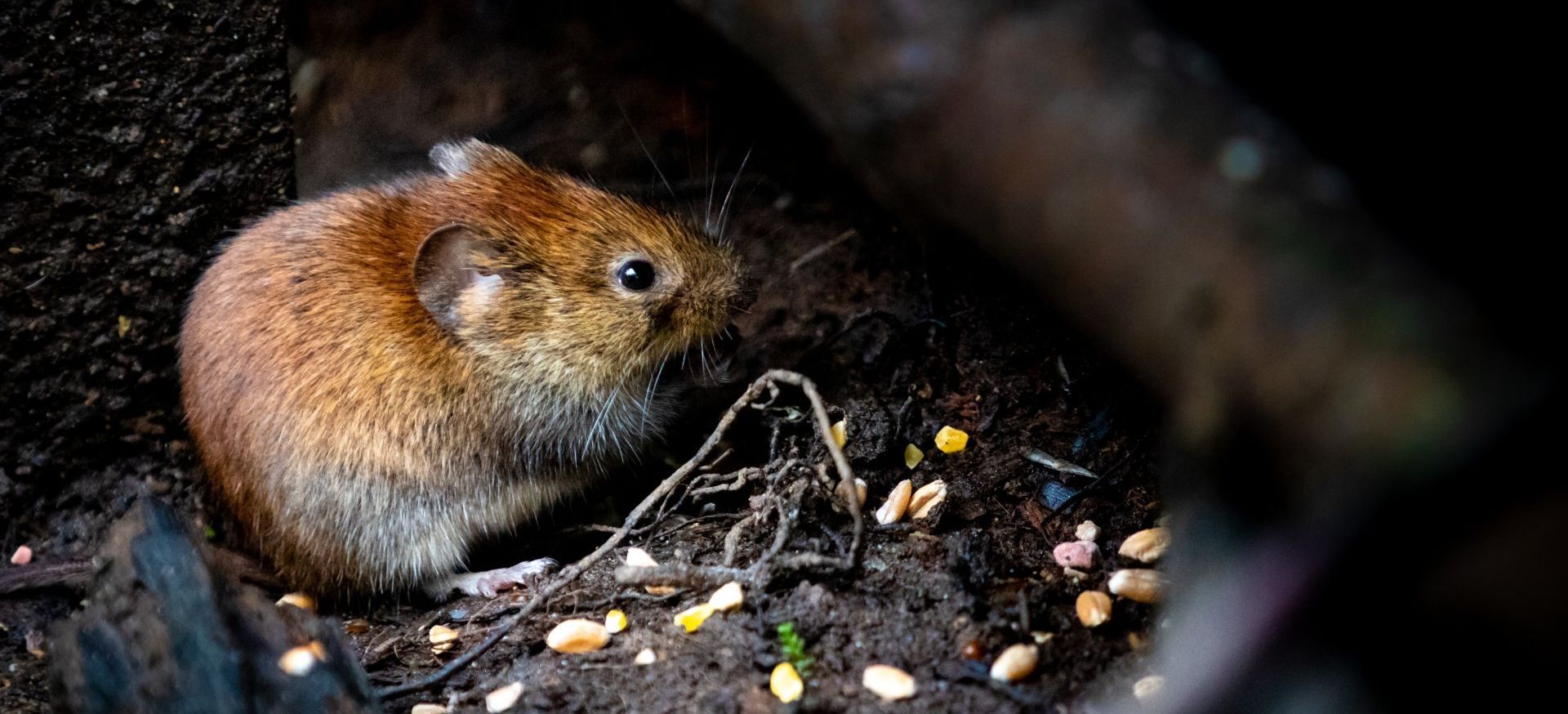How much does rodent control cost?
Southern Pride Pest Solutions • August 4, 2024

Rodents can be more than just a nuisance; they can cause serious problems in your home or business. These pests can chew through wires, contaminate food, and spread diseases. The cost of rodent control varies widely depending on several factors, including the type of rodent, the extent of the infestation, and the methods used to control them. In this article, we'll explore these factors in detail, providing you with a comprehensive guide to understanding how much rodent control might cost you.
Rodent control
costs can vary significantly based on the specific situation. For example, a small infestation of mice may require only a few traps and bait, while a larger infestation of rats might necessitate a more extensive treatment plan, including exclusion work and ongoing monitoring. Additionally, the location of the infestation and the accessibility of the affected areas can also impact the overall cost. Understanding these factors can help you budget for rodent control services and ensure that you get the best value for your money.
Factors Influencing the Cost of Rodent Control
The type of rodents in your home can affect the cost of control. Mice are usually easier and cheaper to deal with than rats. This is because mice are smaller and less aggressive. Other rodents, like squirrels or chipmunks, might also require different treatments, which can impact the cost.
Types of Rodent Control Services That Are Available?
1. Type of Rodents
The type of rodents you're dealing with is a significant factor in determining the cost of control. Mice are generally smaller and easier to manage, making them less expensive to control. However, rats are larger, more aggressive, and often require more extensive treatments. Other rodents, such as squirrels or chipmunks, may also require specialized approaches, which can increase the cost. The specific species can also influence the choice of control methods, as some rodents may be more resistant to certain types of bait or traps.
Moreover, the behavior and habits of the rodents can play a role in determining the cost. For example, roof rats, which tend to nest in higher areas, may require more complex exclusion methods compared to Norway rats, which burrow underground. The presence of multiple rodent species in the same area can also complicate the control process, potentially increasing the cost as different strategies may be needed to address each species effectively.

2. Severity of Infestation
The severity of the infestation is another critical factor that affects the cost of rodent control. A small infestation with only a few rodents may be resolved with a simple trapping or baiting program. However, a severe infestation with a large population of rodents can be more challenging to manage and may require multiple treatments over an extended period. This increases the overall cost, as more labor and materials are needed.
In addition to the number of rodents, the duration of the infestation also plays a role in the cost. Long-standing infestations often result in more damage and contamination, requiring additional cleaning and repair work. In severe cases, structural damage may need to be addressed, such as repairing chewed wires, insulation, or even parts of the building itself. These additional repairs can add to the overall cost of the rodent control process.
3. Methods of Control
There are various methods to control rodents, each with its own set of costs. Common methods include:
- Trapping: Traps are a straightforward and cost-effective solution for catching rodents. They come in various types, including snap traps, live traps, and electronic traps. The cost of traps can vary, with basic snap traps being the least expensive and electronic traps costing more.
- Baiting: Bait stations with poison bait are another common method. This approach is effective for controlling larger populations but can be more expensive due to the cost of the bait and the need for proper disposal of dead rodents.
- Exclusion: Exclusion involves sealing entry points to prevent rodents from entering a building. This method is a long-term solution but can be costly, especially if significant repairs are needed to seal all potential entry points.
- Chemical Treatments: In some cases, chemical treatments may be necessary, particularly for larger infestations. These treatments can include rodenticides, which are poisons specifically designed to kill rodents. The cost of chemical treatments varies depending on the severity of the infestation and the type of chemicals used.
- Integrated Pest Management (IPM): IPM is a comprehensive approach that combines multiple methods, including trapping, baiting, exclusion, and habitat modification. While this approach can be more expensive, it is often the most effective long-term solution.
Each method has its pros and cons, and the choice of method will depend on the specific circumstances of the infestation. For example, trapping may be suitable for a small infestation, while a combination of baiting and exclusion may be necessary for a larger, more complex problem.
4. Location and Accessibility
The location of the infestation can also impact the cost. Urban areas often have higher prices due to the increased demand for pest control services. Additionally, the accessibility of the affected areas can influence the cost. If rodents are nesting in hard-to-reach places like attics, crawl spaces, or walls, it may require more time and effort to remove them, increasing the overall cost.
Moreover, the type of property can also affect the cost. For example, rodent control in commercial buildings may be more expensive than in residential properties due to the size and complexity of the building. Additionally, properties located in areas with a higher prevalence of rodents may require more frequent treatments, further increasing the cost.
5. Frequency of Service
The frequency of service is another factor that can affect the cost of rodent control. One-time treatments are typically less expensive than ongoing maintenance programs. However, ongoing services can provide better long-term control and prevention. These services may include regular inspections, monitoring, and maintenance to ensure that rodents do not return.
Average Costs of Rodent Control
1. Initial Inspection and Assessment
The initial inspection and assessment are crucial first steps in the rodent control process. This involves a professional visiting your property to assess the extent of the infestation, identify entry points, and determine the best course of action. The cost of an initial inspection can range from $50 to $150, depending on the company and location. Some companies may offer free inspections as part of a promotional offer or when bundled with a treatment plan.
During the inspection, the professional will also discuss your options and provide a detailed estimate of the costs involved. This estimate should include a breakdown of the services provided, such as trapping, baiting, exclusion, and any necessary repairs. It's essential to understand these costs upfront to avoid any surprises later on.
2. Common Price Ranges
I think it's worth pointing out again that the the cost of rodent control can vary widely based on the factors discussed earlier. Here's a breakdown of price ranges for different types of treatments:
- Basic Treatments: For minor infestations, basic treatments can range from $300 to $500. This typically includes setting traps and bait stations and may also involve minor exclusion work. Basic treatments are usually sufficient for small, localized infestations.
- Advanced Treatments: For more severe infestations, advanced treatments may cost between $500 and $900. This can include more extensive baiting, trapping, and exclusion work. In some cases, multiple visits may be necessary to fully address the problem, which can increase the overall cost.
- Emergency Services: If you need immediate rodent control services, such as for a sudden and severe infestation, emergency services are available. These services can cost significantly more, often ranging from $900+. Emergency services typically involve a rapid response and may include additional treatments and follow-up visits.
It's important to note that these price ranges are just estimates, and the actual cost may vary depending on the specifics of your situation. Factors such as the size of your property, the extent of the infestation, and the methods used can all influence the final price.
3. Additional Costs and Considerations
Repairs and Exclusions
In addition to the cost of the treatments, there may be additional costs for repairs and cleanup. Rodents can cause significant damage to your property, chewing through wires, insulation, and even structural components. Repairing this damage can add to the overall cost of rodent control. Additionally, cleanup may be necessary to remove droppings, nests, and other debris left behind by the rodents.
The cost of repairs and cleanup can vary depending on the extent of the damage. For example, repairing chewed wires may cost a few hundred dollars, while more extensive damage, such as replacing insulation or repairing structural components, can cost thousands. It's essential to factor these costs into your budget when planning for rodent control services.
Preventative Measures
To prevent future infestations, consider investing in preventative measures. This can include sealing cracks and gaps, installing screens on vents, and keeping food stored securely. The cost of these measures can vary, but they are worth it for long-term protection. For example, sealing entry points can range from $100 to $500, depending on the number and size of the gaps.
In addition to physical barriers, you may also consider using repellents or deterrents to keep rodents away. These can include ultrasonic devices, natural repellents, or even certain plants that rodents find unappealing. While these measures may not completely eliminate the risk of infestation, they can help reduce the likelihood of rodents entering your property.
Warranties and Guarantees
Some pest control companies offer warranties or guarantees on their services. This means they will return to your property for free if rodents return within a certain period. Warranties and guarantees can provide peace of mind, knowing that the company stands behind its work. However, these services may come at an additional cost, so be sure to ask about them when getting quotes.
It's also essential to understand the terms and conditions of any warranties or guarantees offered. For example, some companies may only cover specific types of rodents or require regular maintenance visits to keep the warranty valid. Be sure to read the fine print and ask questions to ensure you fully understand what is covered.
DIY vs. Professional Rodent Control
Pros and Cons of DIY
DIY rodent control can be a cost-effective solution for minor infestations. There are many products available, such as traps and baits, that you can use to control rodents on your own. DIY methods can save you money, as you won't have to pay for professional services. Additionally, handling the problem yourself can give you more control over the process and allow you to choose the methods that you feel most comfortable with.
However, DIY rodent control also has its drawbacks. For one, it can be challenging to identify the extent of the infestation and determine the best course of action. Additionally, DIY methods may not be as effective for larger infestations or for dealing with certain types of rodents. Handling poisons can also be dangerous if not done correctly, posing a risk to you, your family, and your pets.
Benefits of Professional Services
Hiring a professional pest control service offers several benefits. Professionals have the experience and knowledge to identify the type of rodent and the best method for removal. They also have access to more effective treatments that may not be available to the general public. Professional services can provide a more thorough and long-lasting solution, as they can address the root cause of the infestation and prevent future problems.
Another advantage of hiring professionals is the convenience and peace of mind they offer. Dealing with a rodent infestation can be stressful and time-consuming, especially if you're not sure what you're doing. Professional services can handle all aspects of the process, from inspection and treatment to cleanup and repairs. This allows you to focus on other things and ensures that the problem is dealt with quickly and effectively.
Cost Comparison
When comparing the cost of DIY and professional rodent control, it's essential to consider the long-term value. DIY methods can be cheaper upfront, with traps and baits costing anywhere from $10 to $100. However, these methods may not provide a complete solution, especially for larger infestations. As a result, you may need to spend more money over time on additional treatments and repairs.
Professional services, on the other hand, can range from $100 to $1,000 or more, depending on the severity of the infestation and the services provided. While this may seem expensive, it's important to consider the benefits of a professional service, including the thoroughness of the treatment and the potential for long-term prevention. In many cases, investing in professional services can save you money in the long run by preventing future infestations and minimizing damage to your property.
Tips for Choosing a Rodent Control Service
Reputation and Reviews
When choosing a rodent control service, it's essential to research the company's reputation. Start by reading online reviews from past customers to see what they have to say about their experiences. Look for companies with a good track record and positive feedback. Keep an eye out for any recurring issues or complaints, as these may indicate potential problems.
In addition to online reviews, you can also ask for recommendations from friends, family, or neighbors who have dealt with rodent infestations in the past. Personal recommendations can provide valuable insights and help you find a reputable company. You can also check with local consumer protection agencies or search for Google reviews
to determine the reputation of the company.
Licensing and Insurance
Ensure that the rodent control service you choose is licensed and insured. Licensing indicates that the company meets local regulations and has the necessary qualifications to perform rodent control work. Insurance protects you in case of accidents or damage during the treatment process. If a company is not properly licensed or insured, you could be held liable for any issues that arise.
When contacting potential companies, ask for proof of licensing and insurance. You can also verify this information with your state's pest control regulatory agency. Additionally, check if the company's technicians are certified and trained in the latest rodent control methods. This ensures that you receive high-quality service and that the treatments used are safe and effective.
Quotes and Estimates
Before making a decision, get quotes from multiple rodent control companies. This allows you to compare prices and services, helping you find the best value for your money. When requesting quotes, ask for a detailed breakdown of the costs, including any additional fees for repairs, cleanup, or follow-up visits.
Conclusion
Rodent control is a crucial service for maintaining a safe and healthy home or business. The cost of rodent control can vary widely based on factors such as the type of rodent, the severity of the infestation, and the methods used. While DIY methods can be cost-effective for minor infestations, professional services often provide a more comprehensive and long-lasting solution. When choosing a rodent control service, consider the company's reputation, licensing, and pricing to ensure you receive the best value for your money.
By understanding the factors that influence rodent control costs and exploring your options, you can make an informed decision and protect your property from these unwanted pests. Remember, the key to successful rodent control is early detection and prompt action. Don't wait until the problem becomes severe—take steps to address it today and enjoy a rodent-free environment.
If you're dealing with a rodent problem, don't wait any longer!
Contact Southern Pride Pest Solutions for a free estimate and professional advice. We are ready to help you get rid of rodents and keep them from coming back. Protect your home and family with our comprehensive rodent control services today!


